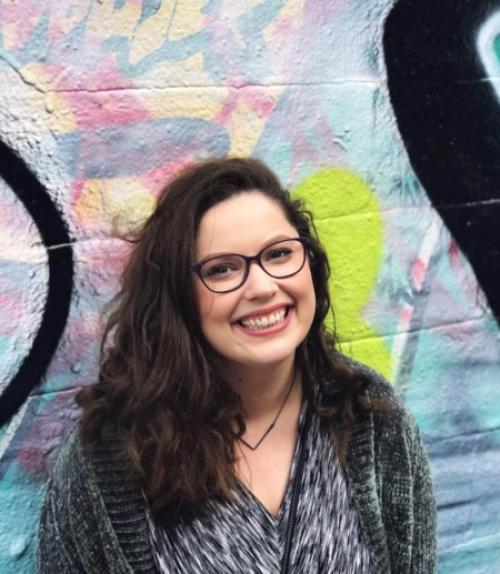Rachel King is a doctoral student in psychology from Rockford, Illinois. After earning her undergraduate degrees from Rock Valley Community College and the University of Wisconsin-Madison, she chose to attend Cornell for the intellectual freedom provided by its interdisciplinary nature. She was interviewed for this story on the Cornell University Graduate School website.
What is your area of research and why is it important?
I study social cognitive development, and I am especially interested in intergroup cognition. In other words, I research how kids come to categorize the people they see in the world into social groups, such as those based on gender, social class, or race. I also research when and how social biases (e.g., social class stereotypes) develop, and how they might be eliminated or prevented in childhood.
What are the larger implications of this research?
Studying how children think allows us to better understand how adults come to be who we are. Much foundational learning about the world happens in the early years, and yet very little is known about what infants and children know (and how they learn what they know). The ample diversity of human experience provides a unique opportunity to tease apart sources of human knowledge through the study of infants and children—for instance, disentangling human universals from cultural anomalies. My work also has practical implications: By understanding how social biases emerge, we can more effectively prevent children from developing prejudiced attitudes.
What inspired you to choose this field of study?
Like many students—especially from non-traditional backgrounds—the route to my current field was winding. An interest in law led me to criminology, criminology led me to forensic psychology, and forensic psychology led me to social psychology. I chose my current field because I find the research theoretically fascinating, and the tangible impact of my research—such as insights into preventing social biases from developing—is an added bonus.
What led you to found the First Generation and Low Income (FiGLI) Graduate Student Organization?
When I arrived on Cornell’s campus last year, I assumed that an organization for first-generation and low-income graduate students already existed. When I found out no such group existed on campus, I reached out to the Office of Inclusion and Student Engagement to get the ball rolling on founding the organization. Shortly thereafter, I was joined by my co-founders, Taylor Brown and Felicia New, and we worked together to get the organization up and running.
How will this group address issues specific to first generation and low income graduate students?
When founding the org, my co-founders and I agreed on three over-arching aims: to provide a community for first-generation and low-income graduate students, to provide first-generation and low-income graduate students with tangible resources, and to give back to surrounding communities on and off campus through service. Toward these aims, we have hosted social gatherings, we are planning workshops and a speaker series for members of the organization to learn valuable skills and connect with FiGLI faculty, and we are in the process of building relationships with other organizations (e.g., local schools) for service opportunities.
What are your hobbies or interests outside of your research or scholarship?
When I’m not working, I’m usually doing vinyasa yoga, painting, or climbing with my partner at the Lindseth Climbing Center.
Why did you choose Cornell to pursue your degree?
I chose to attend Cornell for many reasons, but intellectual freedom was paramount among them. I knew that if I came here, I could follow my passions—even if that meant crossing traditional area, department, or college boundaries.
This story originally appeared on the Cornell University Graduate School website.




